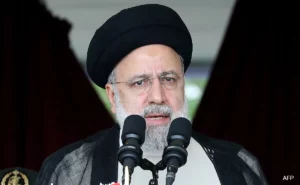Is China Preparing for War? Analyzing the Stockpiling of Essential Items

china
Recently, China has been accumulating a variety of goods, such as food, energy resources, and strategic metals. This broad stockpiling strategy is useful to improve the nation’s stability and security given numerous uncertainties in the world.
Food Security: A Top Priority
China has been building up large stocks of important food staples such as corn, rice and wheat and owns a large part of the global stocks. For instance, the country’s corn only has an estimated reserve of 250 million tons, which is about 50 percent of the global corn reserve. This accumulation is done in accordance with the China’s National Food Security Plan that seeks to guarantee adequate supply of foods and shield the population from unpredictable price swings.
Energy Security: Diversifying Resources
China is also stockpiling resources such as oil, gas and minerals as a way of boosting energy security. The country has not limited its stockpiling activities only to food commodities, as it aims to diversify its resources and cut down on imports.
Rare Earth Metals: Protecting Key Assets
Rare earth metals are used in numerous high tech products, and china has been aggressively accumulating these strategic materials. The country has large deposits of rare earth materials and is the largest producer of these materials in the world. While acquiring rare earth metals, China is trying to guarantee an access to these resources for the country’s internal industries and minimize its dependence on potential supply chain
Gold Reserves: Hedging against Currency Devaluation
China’s central bank, the People’s Bank of China (PBOC), has been on a buying gold for reserves for 18 months ending April 2024. This step forms part of a long-term policy to diversify the sources of forex and to minimize the effects of currency depreciation. As of April 2024, China’s gold reserves have reached 72. 74 million troy ounces.
Implications of China’s Stockpiling Strategy
China’s stockpiling strategy has significant implications for the global economy and international relations:
- Global Food Prices: China has the capability of raising global food price of food especially grains such as corn, rice and wheat through food stockpiling. This is particularly devastating to countries with high food insecurity levels and those with high levels of poverty since it will only worsen both aspects of their lives.
- Trade Tensions: It also creates trade tensions; for instance, China’s stockpiling strategy does not augur well for other countries. For instance, the United States has claimed that China manipulates international markets through accumulation.
- Geopolitical Influence: The accumulation of resources by China augments its political power as it can compel other nations and thereby dictate world events.
Is China Preparing for War?
A Closer Look into the Chinese Military.
Countering the Chinese strategy of storing F&G, it can be stated that while it is a strong economic and food security strategy, it is relevant to national security as well. A country in possession of a stable food supply and key materials that would be useful in a war setting is in a better position as compared to the other country. Nevertheless, it is important to understand that Chinese actions to accumulate these stockpiles are not automatically a sign of war preparation. Modernization and expansion of Chinese military and its capabilities to stockpile are evident and can be viewed as the further attempt to boost the national security status. But, there is a huge difference between preparation for war and sound strategy in civil planning.
Conclusion
China is stockpiling essential items, especially food items, for the purpose of food security, economic security, and strategic advantage. Although this strategy has a great impact on the global economy and intergovernmental relations, it is not a preparation for a war. The world’s second-largest economy, China’s actions exemplify the importance of cooperation and responsible resource management, with the country’s stockpiling strategy serving as a prime example. Thus, China’s stockpiling approach can be seen as a wake-up call for strategists to intensify their efforts towards strengthening the security of their nations. Understanding the specific features of the international relations, countries need to focus on collaboration, openness, and sustainable use of resources to build the common beneficial future.
References:
- Reuters. “China’s Record Grain Imports.” Accessed May 2024.
- Bloomberg. “China’s Energy Stockpiling Strategy.” Accessed May 2024.
- Financial Times. “China’s Metals Hoarding.” Accessed May 2024.
- BBC. “China and Medical Supplies During COVID-19.” Accessed May 2024.
- The Economist. “China’s Economic Resilience.” Accessed May 2024.
- Asia Times. “China’s National Security Strategy.” Accessed May 2024.
- Foreign Policy. “Geopolitical Tensions and China’s Stockpiling.” Accessed May 2024.
- WHO. “Pandemic Preparedness and China’s Response.” Accessed May 2024.
- Defense News. “China’s Military Modernization.” Accessed May 2024.
- CNN. “China’s Territorial Disputes.” Accessed May 2024.
- The Diplomat. “Internal Stability and Resource Security in China.” Accessed May 2024.






